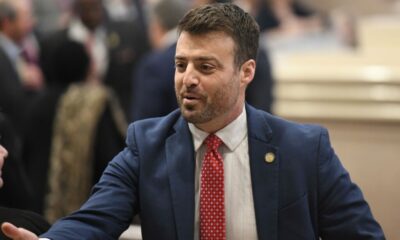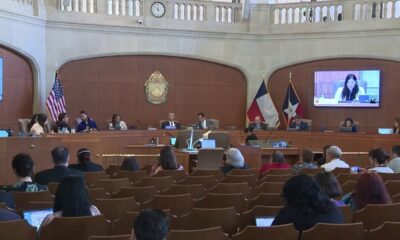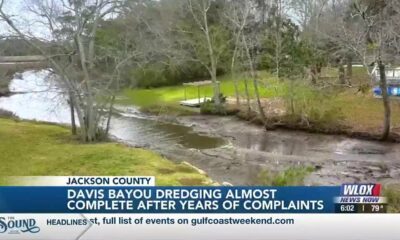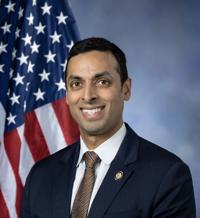virginiamercury.com – Markus Schmidt – 2025-04-02 17:41:00
by Markus Schmidt, Virginia Mercury
April 2, 2025
In a dramatic but ultimately symbolic show of defiance, Virginia House Democrats on Wednesday tried — and failed — to override 13 of Gov. Glenn Youngkin’s vetoes from this year’s legislative session, knowing full well the numbers were never in their favor.
Youngkin, a Republican, rejected 157 of the 915 measures sent to his desk by the Democratic-controlled General Assembly in February, flexing his veto pen more aggressively than any Virginia governor in decades.
But with Democrats holding only narrow majorities — 51-49 in the House and 21-19 in the Senate — their chances of reversing any of those decisions were always slim. Overriding a gubernatorial veto in Virginia requires a two-thirds vote in both chambers.
Still, Wednesday’s veto session was less about math and more about momentum in a pivotal election year. With every seat in the House of Delegates on the ballot and a gubernatorial race already underway, Democrats used the day to draw sharp contrasts with the Republican agenda — and with the party’s standard bearer, President Donald Trump.
Nearly every Democratic lawmaker who rose to speak did so with a common refrain, casting House Republicans as “terrified of Trump” and unwilling to stand up for Virginia values — from voting rights and gun safety to fair wages and union rights.
Bid to ban assault-style weapons falls short
While the Senate declined to take up any of the vetoed bills, House Democrats fell short in their attempt to override Youngkin’s veto of a bill restricting assault-style firearms. The 50-46 party-line vote was a setback for legislation central to Virginia’s ongoing gun debate.
House Bill 1607, identical to Senate Bill 1181, would have made it a Class 1 misdemeanor to import, sell, or transfer assault-style firearms, with exceptions for antiques, inoperable or manually operated guns, and those made before July 1, 2025. It also barred those under 21 from possessing such firearms and banned high-capacity magazines.
Del. Dan Helmer, D-Fairfax, a combat veteran and the bill’s sponsor, defended it as a public safety measure.
“These weapons were designed for the battlefield, not for our streets,” Helmer said. “They have no place in Virginia. Our law enforcement officers work tirelessly to keep our community safe … The least we can do is to support them.”
He accused GOP lawmakers of bowing to special interests: “Once again, the Republicans’ priorities are not the priorities of Virginia’s working families. They are too terrified of Donald Trump to act to remove weapons of war from our communities.”
Del. Nick Freitas, R-Culpeper, also a veteran, pushed back, saying the bill would punish law-abiding citizens.
“I also carried weapons overseas in combat situations, and I don’t recall once when I was either conducting combat operations (or) any part in the oath I swore to the Constitution to then be able to come back, sit in this legislature and deprive American citizens of their constitutionally protected rights to defend themselves.”
Protecting voting rights
The House also came up short in an effort to override Youngkin’s veto of HB 1657, a bill that would have required the Department of Elections to complete any large-scale voter roll removals at least 90 days before any primary or general election — a safeguard currently in place only for federal races.
Mirroring SB 813, the measure permitted removals in cases of death, felony conviction, mental incapacity, or at the voter’s request — all allowed under current law. It also would have extended the time registrars have to process cancellations from 30 to 60 days and doubled the response window for voters flagged over citizenship concerns from 14 to 28 days.
“The right to vote is sacred as the cornerstone of our democracy and the foundations of our commonwealth,” said Del. Rozia Henson, D-Woodbridge, the bill’s sponsor. “To have a person’s voting rights stripped away so close to an election is simply something that you cannot fathom.”
Henson added, “Let me be clear, if you are ineligible to vote, you simply cannot vote, but it is also the law that voters cannot be systematically purged at the whim of the governor. Yet time and time and time again, Republicans have shown that they’re too scared of Donald Trump to stand up for our democracy and too afraid to protect the right to vote.”
A similar fate befell HB 2002, which sought to limit local registrars to canceling voter registrations only based on data from the Department of Elections or approved state agencies — unless a voter submitted a written request to cancel their own registration.
The bill also aimed to reinstate protections for active-duty military members, Americans temporarily overseas and their families, ensuring their registrations couldn’t be canceled while they remained eligible.
“In Virginia we believe in fair, secure, and accessible elections,” said Del. Amy Laufer, D-Albemarle, the bill’s sponsor. “We have a duty to ensure that our elections are secure without undermining the fundamental right to vote, and we cannot allow outside influences or partisan games to threaten that sacred right.”
Minimum wage hike fails
An attempt by House Democrats to override Youngkin’s veto of a proposed minimum wage increase also fell short.
HB 1928, sponsored by Del. Jeion Ward, D-Hampton, outlined a phased wage hike — codifying the already-scheduled increase to $12.41 per hour on Jan. 1, 2025, followed by raises to $13.50 in 2026 and $15.00 by 2027.
Ward framed the legislation as essential to working families. “Raising a minimum wage is about people, it’s about families struggling to keep lights on,” she said. “It’s about parents working double shifts to afford childcare. And it’s about the workers who keep Virginia running, but they are still left behind.”
But Republicans pushed back, arguing the bill would backfire on the very people it intended to help.
“What your bill actually does is make it illegal to hire someone at a certain amount,” Freitas said. “There’s no such thing as just one minimum wage, there is always two. There is the arbitrary wage that you set, and then there is $0. And a lot of people are going to end up getting $0.”
He warned that higher wage mandates could eliminate jobs altogether: “You don’t just lift people up to a higher wage.”
Marijuana justice efforts stalls
Another proposal — HB 2555 — which would have offered sentencing relief for individuals convicted of marijuana-related felonies, also failed to clear the hurdle of a veto override.
The bill would have granted automatic hearings to those still incarcerated or under supervision as of July 1, 2025 for marijuana offenses committed before legalization in 2021.
The bill recognized Virginia’s shift in marijuana laws and aimed to provide relief for people still serving time for outdated crimes. But Youngkin, in his veto statement, argued that the bill went too far by potentially benefiting individuals convicted of serious crimes.
“While framed as a measure for non-violent offenders,” he wrote, “this bill would allow sentence reductions for individuals convicted of serious crimes, including those involving fentanyl distribution, sales to minors, and violent offenses where marijuana was a factor.”
He also warned of broader consequences for the justice system. “The proposal places an undue burden on courts, prosecutors, and victims,” Youngkin stated, “requiring hearings even for those whose sentences were enhanced by prior marijuana convictions but were primarily convicted of far more serious offenses.”
Henson, who sponsored the legislation, defended the bill as a matter of justice.
“We came a long way in legalizing marijuana,” he said. “The question is why are they afraid to give someone a second chance?”
“Justice is supposed to be about balance,” Henson added. “We have people convicted of marijuana-related offenses still suffering, even though what they did is no longer against the law. This bill gave a chance to make things right.”
No strengthening of union rights
Lastly, the House was unable to secure enough votes to override the governor’s veto of HB 2764, which would have allowed collective bargaining for Virginia’s public employees.
The measure aimed to repeal the state’s ban on public-sector union negotiations and create a Public Employee Relations Board to oversee the process for state and local workers.
The bill required good-faith bargaining over wages, hours and working conditions, and removed a provision mandating secret ballots in union elections — a change critics said could compromise employee privacy.
In his veto statement, Youngkin called the proposal a major policy shift that would “threaten the funding and delivery of critical state and local services” and cost taxpayers “hundreds of millions of dollars a year.” He also criticized the lack of a funding plan, saying agencies were unprepared for the legal and administrative demands.
Del. Kathy Tran, D-Fairfax, the bill’s sponsor, said the measure was about standing with workers.
“Virginia has an opportunity to lead,” she said. “We can demonstrate that we value our workers … by giving them a seat at the table and (improving) our services.”
YOU MAKE OUR WORK POSSIBLE.
SUPPORT
Virginia Mercury is part of States Newsroom, a nonprofit news network supported by grants and a coalition of donors as a 501c(3) public charity. Virginia Mercury maintains editorial independence. Contact Editor Samantha Willis for questions: info@virginiamercury.com.
The post Democrats fail to override Youngkin vetoes in largely symbolic showdown appeared first on virginiamercury.com












































